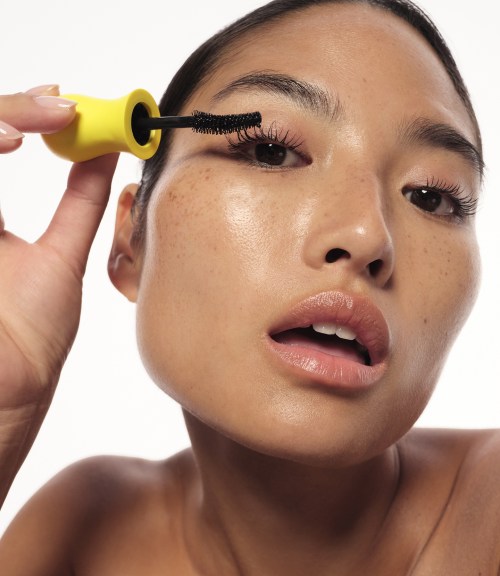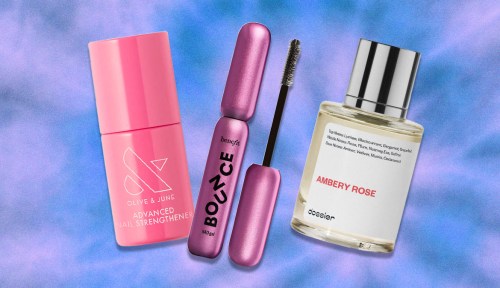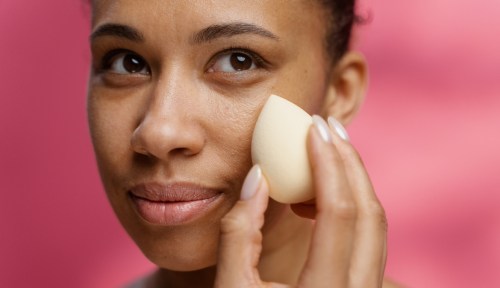Twenty-five year-old Annie Jacobsen got the words “Be Here Now” tattooed on the inside of her arm one year after her struggles with anxiety pushed her to the point of what she calls a “mental breakdown.”
“Almost exactly a year prior to getting the tattoo, my anxiety had reached an all-time high, and it had spiraled out of control in a way that my therapist could no longer give me the help I needed. We decided to try medication,” she says. “Eight months later, I was in a place to come off that medication. A few months after that, I had reached a point post-2017 mental breakdown, where—honestly for the first time in my life—I felt like I was finally in control.”
Cut to September, 2018, when Jacobsen was traveling through Serbia and decided to get the three words inked in script stretching from her elbow to her wrist. “I knew it wasn’t over—my struggle will never be over—but I wanted a way to remember how much had changed in one year,” she says. “I wanted something to look at to remind me to be present and live in the moment. People with anxiety tend to live in the future, and my experience in 2018 taught me the importance of taking in what’s in front of you, even if it’s impossibly challenging.”
Jacobsen’s ink may be deeply personal, but it reflects a rising trend in which tattoos have become a significant part of an individual’s mental health recovery journey.
The rise of mental health recovery tattoos
Mental health recovery tattoos, like Jacobsen’s, have become increasingly common as the stigma against mental health has (slowly but surely) started to fall away. Take singer Demi Lovato, who has the words “stay” and “strong” as permanent reminders on her wrists, and she’s certainly not alone. Behind #mentalhealthtattoo on Instagram, you’ll find common designs like serotonin molecules, heartbeat monitor imagery, and phrases to inspire people to “stay strong” and know they’re “not alone”.
“For the person who chooses to get a tattoo, many times it’s a much deeper process of reflection,” says Shainna Ali, PhD, a mental health professional. “What’s the point of getting a tattoo, what purpose will this serve, what’s the symbolism—a tattoo serves something deeper for that individual involved. For example, a star for someone could represent a star for one person, and for someone else, it might mean something deeper, like a life lost. A tattoo can be used to honor whatever it is—whether it’s a person, a choice, or a lifestyle.”
My own first tattoo—a white infinity sign on the inside of my wrist with the word “life” inscribed in it—is a tribute to a mental health scare I went through in college. Ten years later, it serves as a reminder to make that choice every day.
This type of ink can be a powerful recovery tool
Some mental health experts say getting a tattoo can be a helpful part of a person’s healing process, allowing them to view parts of themselves or their mental health history in a different light. For me, at least, this stands true. Decorating my body with a reminder of what I’ve been through helps me to look at the experience as something more positive, and confirms that—even in my darkest moments—I am a survivor. Jacobsen, too, shares similar sentiments. “My struggle will never be over, but I wanted a way to remember how much had changed in one year,” she tells me.
With certain designs becoming representative of recovery (like the semi colon, for example, which represents mental health struggles and suicide prevention), there’s also an element of community that these types of tattoos can foster. “Someone might be a support you, who wouldn’t have had unless they saw that symbol,” says Dr. Ali.
Brooklyn-based tattoo artist Joice Wang has taken the concept of mental health recovery tattoos one step further, offering free tattoos to clients looking to cover up scars from self-harm. But only on the condition that they donate a minimum of $350 to one of three mental health charities: The American Foundation for Suicide Prevention, The Trevor Project, and The Brain & Behavior Research Foundation. “This way I’m able to tackle two issues: funding the necessary resources for people who are going through anything traumatic or need assistance in any way, and also covering up scars,” she tells me. “Sometimes I’m sitting with somebody for 12 hours and you really get to know them. It’s such a cathartic release to sit with a person for so long and talk about things of meaning.”
And for people with mental health tattoos, that “meaning” can stretch on long after they leave their artist’s chair. “‘Be here now’ is my reminder to live in the moment,” says Jacobsen. “My anxious brain is always figuring out every possible outcome to every single ‘what if?’ scenario it can come up with. [My tattoo has] grounded me during panic attacks and is a reminder of how far I’ve come. It’s also a reminder of where I’ve been, which is something I’ve just recently started appreciating.”
Hit the “restart” button with our 30-day Mental Wellness Plan. Plus, how tattoos can prove that you’re the HBIC of your own body.
Sign Up for Our Daily Newsletter
Get all the latest in wellness, trends, food, fitness, beauty, and more delivered right to your inbox.
Got it, you've been added to our email list.











